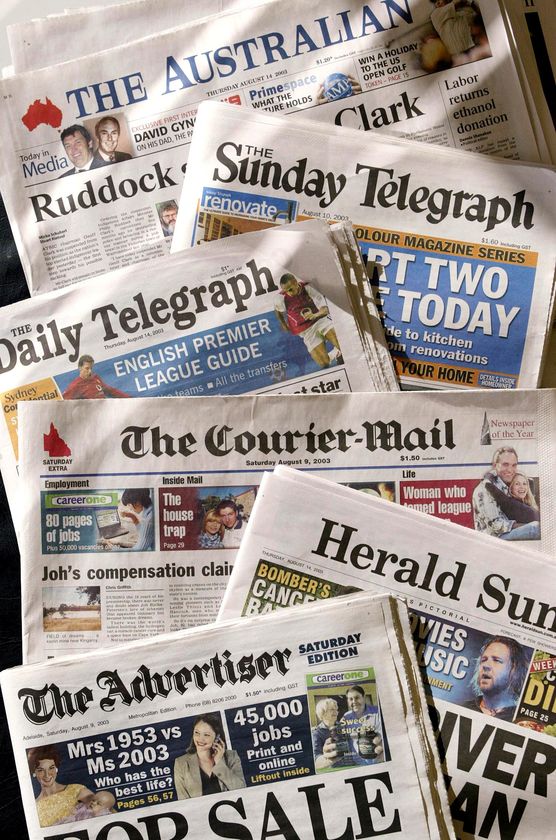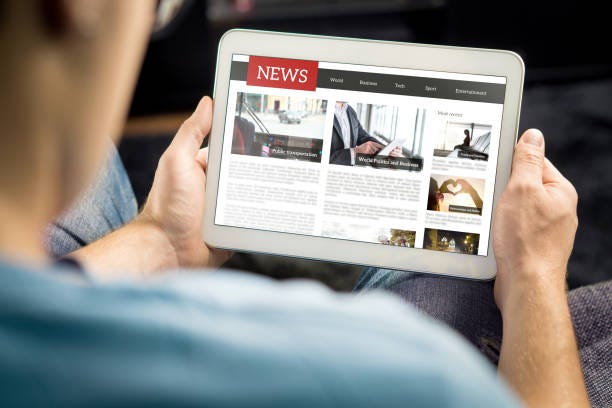Getting The Online News To Work
Getting The Online News To Work
Blog Article
How Online News can Save You Time, Stress, and Money.
Table of ContentsThe Definitive Guide to Online News6 Simple Techniques For Online News8 Simple Techniques For Online NewsGet This Report on Online NewsThe Facts About Online News Uncovered
Numbers for the percentage of individuals paying for on-line information were within the margin of mistake for both studies. Allow's initial consider people who have access to news that you would typically have to pay for. It makes sense to start here since some people have access to paywalled news through totally free trials, through their task, and so on.There are various forms of access, but the 3 most common are subscriptions to on the internet information from a solitary brand name, registrations to a print/digital bundle from a single brand, and a subscription to numerous brand names aggregated in one location. Of these, digital-only subscriptions to a solitary brand name are one of the most common type of accessibility in all three countries.
Paid information collectors are fairly popular in the US, mainly thanks to Apple News+, but currently these are far less typical than memberships to single information brands. As we saw in the Executive Recap, people primarily have access to among a little team of noticeable brand names. In the United States, over fifty percent of these people have access to either the New York Times or the Washington Message, and in the UK, it's The Times or the Telegraph.
The Ultimate Guide To Online News
Nonetheless, most of this group have accessibility due to the fact that they are spending for registrations with their very own cash 75% in Norway and the UK, and 84% in the United States. For under-45s the number is reduced. Among those 45 and over, the huge majority of those that have access are paying with their own money.
In the United States and specifically Norway, several publishers have presented paywalls, which means more people will be asked to pay probably heightening a feeling of shortage and creating a sensation that news might be worth paying for. In the UK, by contrast, only a fairly small number of publications try to charge for news.
In this respect it interests compare the various reasons subscribers provide in the United States and UK for spending for online information. Overall, the most crucial variable is the diversity and quality of the material. In both countries, subscribers believe they are getting far better information than from cost-free sources.

Not known Factual Statements About Online News
These extra elements appear to be especially useful for retention as they develop routine and are much less replicable somewhere else. For Norwegians too the diversity of content came out on leading together with ease and convenience of use. 'Aftenposten is a major newspaper with terrific quality', claimed one participant, however it was striking that 'sustaining great journalism' is much less of a motivation (21%) probably because mainstream media outlets are seen as less polarised in Norway.
Furthermore, around half of those that presently have complimentary access say that they may start paying if their open door goes out. This is motivating, and possibly a lot more encouraging still is that these figures indicate retention rates that approach those for registrations to video and audio streaming services like Netflix and Spotify.
It can additionally be seen as a beneficial reminder that people do not always subscribe this article for life, and boasts regarding the variety of 'brand-new subscribers' may not be informing the entire story (Online News). There's considerable 'spin' around, as many my review here individuals finish their cost-free trials before they have to pay, or just terminate their subscriptions to invest their money on various other points
Female, 37, Norway It cost means way too much and I can get round the paywall. Male, 36, US Too expensive, felt there was nothing I couldn't get free of cost on Apple News. Female, 19, UK In the UK, the number of people that utilized to have accessibility to paid information (10%) is close to the variety of individuals that presently have accessibility (9%) with the equivalent figures from the US and Norway higher still (albeit less than the number of people with access).
Rumored Buzz on Online News
As we have actually currently seen, existing customers are relatively pleased, but with revenue from electronic advertising and marketing unsure lots of publishers will be looking to raise the variety of new subscribers. In contrasting our 3 countries we see some intriguing distinctions that might inform author techniques. We observe a really high proportion (40% in the United States and 50% in the UK) that say that absolutely nothing could encourage them to pay.
In Norway, where rate of interest in information has a tendency to be greater and where cost-free news is more restricted just 19% state they could not be persuaded. Rate and benefit are several of the essential home variables that might make a distinction. In Norway, a third (30%) state they might subscribe if it was more affordable and 17% if they could pay to accessibility multiple sites from a solitary payment.
Publishers have actually significantly been using differential pricing to select up company from those not likely to pay full rate (e.g. overseas clients and pupils). Paying to avoid invasive advertisements is one more possible route for publishers, with around one in 7 participants in all three nations claiming this this might lure them to subscribe.

Unknown Facts About Online News
Some electrical outlets currently ask readers to sign up with them in order to be able to access a small number of posts for cost-free. In all three countries fewer than half believe signing up is a fair profession, however it's likewise clear that individuals are not strongly opposed either.
Between 13% and 22% in our three countries say they signed up to gain access to information content in the last year. Some are likewise utilizing other methods to get around paywalls such as resetting cookies, transforming their web browser setups, or even downloading and install specialized software application. Simply a third say they have ever tried to do something such as this, as it calls for a specific degree of electronic proficiency, and lots of are probably not aware that is a possibility.
Individuals have different sights about the civil liberties and wrongs of trying to sidestep paywalls. Few would certainly argue that this is constantly justifiable, however some individuals do have reservations around important public-interest journalism only being readily available to those prepared and able to pay for it. A paywalled expositions of the UK government's handling of the coronavirus break out by the Sunday Times brought about a heated discussion regarding the concern on Twitter, with some attempting to freely share the complete article.
Report this page